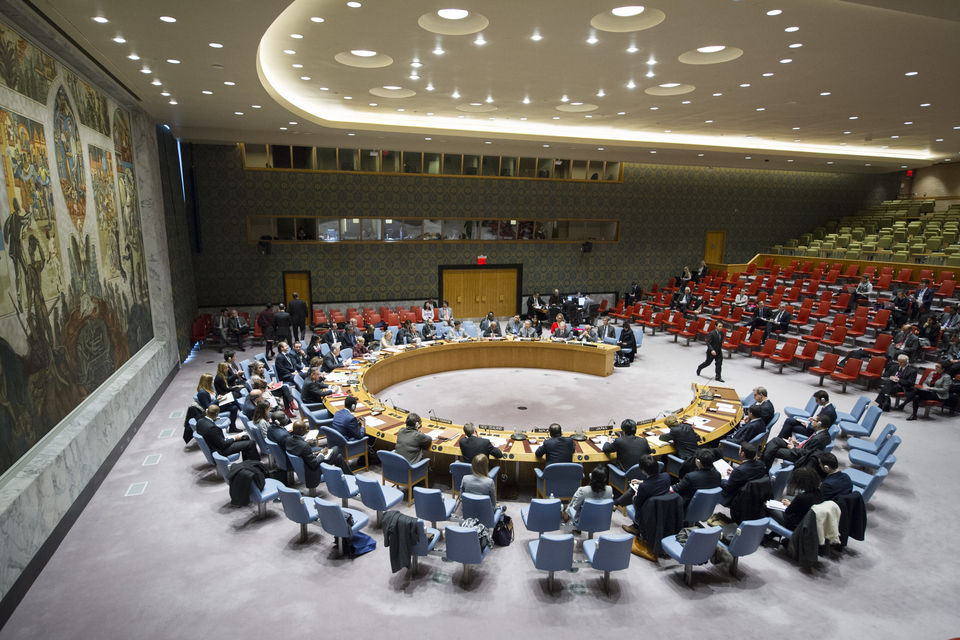Statement by the delegation of Ukraine at the UNSC debate on ICTY/ICTR

Mr. President,
Welcoming the progress reflected in the recent ICTY and MICT reports, my delegation considers this meeting and the forthcoming adoption of a resolution reappointing ICTY judges and prosecutor of outmost importance in light of the planned closure of the Tribunal in 2017. In this regard, I would like to commend the measures and efforts of the President of the Tribunal to ensure timely conclusion of all cases before the ICTY.
Today, when we are in the final stage of the ICTY’s work, we should pay special attention to existing problems and challenges that the Tribunal continues to face, while acknowledging its well-known achievements in combating impunity and its contribution to international criminal justice and rule of law.
Firstly, I would like to raise the issue of cooperation with the Tribunal.
According to article 29 of the ICTY Statute, cooperation and judicial assistance is one of the preconditions for successful fulfillment of the mandate of the Tribunal. Unfortunately, for over 22 months Serbia has failed to act to execute the Tribunal’s arrest warrants for three Serbian indictees. In this regard, we would like to underline that there can be no justification for refraining from cooperation and we urge the Government of Serbia to return to the path of full compliance with its obligations.
The ICTY and the ICTR as well as other international criminal courts, including the ICC, were created to ensure global justice and responsibility for grave international crimes. With this in mind, we are particularly concerned about the recent trend to suspend or reduce cooperation with international criminal tribunals. We have also seen instances where states decided not become party to a treaty they signed previously. We regret these decisions and consider them a step back, undermining prevention efforts and due prosecution of the most serious crimes. The international community must be consolidated in its strong support of the criminal tribunals’ work to ensure the right to justice to all victims of mass atrocities.
The second problematic issue noted by the President of ICTY is staff attrition.
We are concerned about this problem and acknowledge the efforts the Office of the President and the Registrar to address it. Taking into consideration the potential exodus of highly experienced experts while the ICTY’s mandate is approaching its end, we need to lend our support to the proposals to strengthen the Tribunal’s resources in order to address this administrative challenge.
Mr. President,
On a different note, my delegation welcomes the project of a series of legacy and closing events titled “ICTY Legacy Dialogues”, which was developed by the Tribunal to summarize best practices from over 20 years of its work and to bolster transitional justice efforts in the region.
We would also like to mention another positive effort to accumulate the Tribunal’s knowledge and expertise – creation of the first ICTY Information Centre, to be located in the City Hall of Sarajevo in Bosnia and Herzegovina.
On the Mechanism, my delegation commends its judicial activities and issuance of more than 800 orders and decisions since its establishment, as well as the continuing efforts to reduce the costs and improvement of procedures and operations of the MICT.
We welcome the active work of the Mechanism on preparations to take over responsibilities for all remaining aspects of the ICTY’s functions after its closure next year, including preservation of the archives. We can’t afford the luxury of forgetting the lessons of history that were learned at a staggering cost of human lives. Otherwise, joint efforts to prevent horrible crimes in the future will be doomed to failure.
To conclude, Mr. President, I would like to once again stress the necessity of cooperation with international criminal tribunals to ensure their effective functioning.
We urge all States to cooperate with the ICTY and the Mechanism and to respect their mandates in full compliance with obligations under relevant Security Council resolutions.
I thank you, Mr. President.
